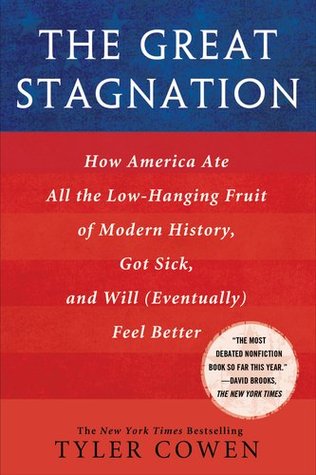French economist Thomas Piketty’s book Capital in the Twenty-First Century has been published in English. It has become something of a sensation. My copy from the library can’t possibly be read before it must be returned, so take the following with strong caveat that I haven’t read it cover to cover! There have been many reviews, and the following is only a selection. What does emerge in many is nothing more than a conclusory and self-serving complaint that Piketty has followed a different set of theories and policy recommendations than the particular ones the reviewer endorses. But the better ones actually provide a substantive analysis of where Piketty’s theory fails, and why. Against that backdrop, it seemed worthwhile to post links to some of the most intriguing comments and reviews, which generally come to the conclusion that the book is most valuable putting forward observational facts, and is less successful in terms of offering theory and policy advice:
Alan Nasser “Apolitical Economy: Democracy and Dynasty (Thomas Piketty and His Discontents)”
Nasser finds Piketty’s overall analysis flawed and muddled, because it is politically naive and neglects such factors as the role of worker and citizen militancy in promoting equality. The thrust of the critique is that Piketty is in an awkward position where he fails (or refuses) to grasp the implications of his data, and rules out alternative political solutions for reasons he does not justify. He labels Piketty essentially a neoliberal, yet still commends him for avoiding its “essentially apologetic assertions, the big ones that count[.]” Nasser comes at this from a perspective reminiscent of sociologists Frances Fox Piven and Richard Cloward (Poor People’s Movements: Why They Succeed, How They Fail). It’s an analysis that Nasser fortunately backs up with a substantial number of historical references and well-documented countervailing theories. Can’t wait for Nasser’s new book to arrive.
James K. Galbraith, “Kapital for the Twenty-First Century?”
Galbraith’s critique of Piketty’s book for Dissent Magazine is the one that has perhaps received the most attention. “It is a book mainly about the valuation placed on tangible and financial assets, the distribution of those assets through time, and the inheritance of wealth from one generation to the next.” He is most critical in concluding that Piketty “does not provide a very sound guide to policy. And despite its great ambitions, his book is not the accomplished work of high theory that its title, length, and reception (so far) suggest.” To back up those statements, Galbraith makes the point that Piketty “conflates physical capital equipment with all forms of money-valued wealth, including land and housing, whether that wealth is in productive use or not.” Galbraith ties this to the so-called “Cambridge Controversies”, implying that Piketty takes a basically neoliberal approach and has no meaningful response to the English side of the argument (from Joan Robinson et al.). He also questions some of Piketty’s claims about his data, noting that payroll data can be used instead of income tax data, but also that “income tax data are . . . only as accurate as tax systems are effective.”
Thomas I. Palley, “The Accidental Controversialist:
Deeper Reflections on Thomas Piketty’s ‘Capital'”
Palley discusses the surprising popular success of Piketty’s book in English translation. “The book’s timing is near-perfect because of awakened political interest in inequality, but its empirical findings are not revolutionary and rising income and wealth inequality have been documented for years, albeit less comprehensively.” The tone of Palley’s review revolves around Piketty’s insistence that he “discovered” recent trends in inequality, when in fact many others have documented that phenomenon before — albeit less extensively. In this regard, Piketty made such a “discovery” no more than Christopher Columbus “discovered” an inhabited continent. Palley provides a useful compendium of sources that pre-date Piketty’s work and which tend to emphasize economic and political power (institutional factors) over the “growth” approach of neoclassical economics.
Michael Hudson, “The 1% and Piketty” and “Piketty’s Wealth Gap Wake Up” and “Piketty vs. the Classical Economic Reformers”
Hudson did interviews on The Real News Network and Renegade Economists both touching on Piketty’s book. He says, “basically, he’s described the symptoms of what’s wrong. And people are very glad that at least he’s described the symptoms that everybody knew but nobody had spent the three or four years that it took to make all of the charts charts that he’s made.” In one interview Hudson says Piketty statistically “shows that wealth inequality is actually much wider than income inequality . . . .” But in the other he says “The problem with Piketty’s statistics are that it vastly understates how unequal the world really is . . . .” “He’s started the discussion by showing the fact of vast inequality. What needs to be done now is to explain how did this inequality come about and what do you do about it?” He references the Gustavus Myers’ book(s) History of the Great American Fortunes. Hudson is critical of Piketty’s policy prescriptions. “[T]he neoliberals love Piketty. That’s why Krugman loves Piketty. You can’t implement it. So he’s produced a book without any solution, and the free enterprise boys like that. The 1 percent don’t mind being criticized as long as there’s no solution to their problem. And that’s what the critics have come out saying . . . .” “One of the things that Piketty does not discuss when it comes to making fortunes is the role of debt, that most of these fortunes that have taken off since 1980 have taken off because of the increased debt leverage. *** And what to me really has been accelerating wealth at the very top is the financial sector, is the ability of the 1% to get the other 99% in debt to them . . . .”
EconoSpeak, “Inequality and Sabotage: Piketty, Veblen and Kalecki (for anne at Economist’s View)”
Points out that Piketty’s key arguments have been made by others like Thorstein Veblen long before. Like Alan Nasser, this article also suggests Piketty is ignoring the role of unions and militant activism in relation to economic inequality. The curious may also want to read Eric Zencey’s New York Times Op-Ed from April 11, 2009, “Mr. Soddy’s Econological Economy,” which made essentially the same points based on the work of Frederick Soddy.
Seth Ackerman, “Piketty’s Fair-Weather Friends”
Endorses Piketty’s efforts and data collection, but faults him for his confused neoclassical theories. Goes so far as to say Robinson and Sraffa won the Cambridge Capital Controversies debates (this is in Jacobin Magazine), but actually provides a substantive analysis in support of that conclusion and how it applies to Piketty’s work. The most significant conclusion here is that Piketty’s data does support the idea that “r” (rate of return on capital) does seem to remain relatively unchanged over time, but “g” (rate of economic growth) does change and the data shows a tendency for it to be lower relative to mid Twentieth Century levels. The result is that large income inequalities, and ultimately large wealth inequalities, are the norm not an exception. Ackerman then returns to the idea that a neoclassical, marginalist r > g focus basically misses the real drivers on a theoretical level. When this review turns to alternative theories and data, rather than pure critique of Piketty’s book, the analysis is curt and less clearly explained.
Philip Pilkington, “Piketty’s Regressive Views on Public Debt and the Potential Impact of His Book”
Calls the book readable, though not well written. Agrees with Galbraith’s critiques, saying “in some ways, the book is a mess owing to a lack of a solid macroeconomic framework.” Also, “the history presented in Piketty’s book is selective and . . . ultimately untrustworthy.”
John McDermott, “Piketty Is No Piketty: Of Capital and Wealth”
He notes that Piketty’s analysis is confused, because, “for Piketty . . . , people and institutions play an almost non-existent role. Only five social ‘phenomena’ escape this erasure; two world wars, the great depression, today’s fabulously rewarded ‘supermanagers’, and a middle class newly able to pass mini-riches to its heirs. For the rest, there are no people and, most notably, no institutions.” This is a complaint that Piketty follows neoclassical dogma despite its obvious flaws. To that end, he complains that Piketty’s equation of capital with wealth ignores necessary distinctions between wage-salary income and property income. He also finds Piketty’s distinction between capital and human capital to be fundamentally incoherent. Analogizing to Henry George, McDermott notes that Piketty’s proposed solution to the problem of gains from capital exceeding the growth of the rest of the economy is that “One must intervene from outside this process, not to correct it but to correct for it.” He nonetheless praises Piketty for forcing “the needed discussion about the compatibility of hyper-hyper wealth with the sort of world most of us want to live in.”
Various Authors, Real-World Economics Review, Issue No. 69
An entire issue of this journal was devoted to a critique of Piketty’s book.
Potemkin Review, “Piketty Interview”
An interview with Piketty in which he acknowledges some of the points raised in the reviews above.
And, to round out this listing, here are some other, sometimes good but sometimes less interesting (if not downright stupid) reviews and commentary: Frédéric Lordon, “‘Why are you acting the Marxist?’ Frédéric Lordon on Thomas Piketty’s ‘Capital and Ideology'” Adam David Morton, “Questioning Piketty,” Patrick Bond, “Can World’s Worst Case of Inequality be Fixed by Pikettian Posturing?,” Martin Wolf, “‘Capital in the Twenty-First Century’, by Thomas Piketty,” Rob Urie, “Off With Their Heads, Thomas Piketty Edition,” Jack Rasmus, “Economists Discover Inequality” (it’s too bad Rasmus doesn’t mention Michael Hudson as someone who has tried to explain what is identified as needing explanation), Slavoj Žižek, “Slavoj Žižek comments on Thomas Piketty’s ‘Le Capital au XXIe siècle’” (“my claim is that if you imagine a world organization where the measure proposed by Piketty can effectively be enacted, then the problems are already solved. Then already you have a total political reorganization, you have a global power which effectively can control capital, we already won. So I think in this sense he cheats, the true problem is to create the conditions for his apparently modest measure to be actualized.”), Roberto Savio, “Inequality and Democracy,” Moisés Naím, “The Problem With Piketty’s Inequality Formula” (argues that Piketty ignores corruption as a factor in inequality), James Howard Kunstler, “Piketty Dikitty Rikitty,” Paul Krugman, “Why We’re in a New Gilded Age,” Paul Street, “Avoiding the Capitalist Apocalypse,” Dean Baker, “Economic Policy in a Post-Piketty World,” Anthony DiMaggio, “On the Cowardice & Irrelevance of Social Science Scholars: Education in Crisis,” Eric Zuess, “The Economics of Inequality: The Wealth Chasm,” David Harvey, “Afterthoughts on Piketty’s Capital,” The Economist, “All Men Are Created Unequal: Revisiting an Old Argument About the Impact of Capitalism,” Larry Elliott, “Thomas Piketty: The French Economist Bringing Capitalism to Book,” Kyle Smith, “Six Ways Thomas Piketty’s ‘Capital’ Isn’t Holding Up to Scrutiny” (perhaps the stupidest review in this list!), John Cassidy, “Forces of Divergence: Is surging inequality Endemic to Capitalism?,” Robert M. Solow, “Thomas Piketty Is Right: Everything You Need to Know About ‘Capital in the Twenty-First Century’,” Charles Andrews, “Thomas Piketty’s Capital in the Twenty-First Century: Its Uses and Limits,” Daniel Shuchman, “Thomas Piketty Revives Marx for the 21st Century,” John Palmer, “Book Review: Capital in the Twenty-First Century by Thomas Piketty,” Stephen Colbert, “Thomas Piketty Interview,” Paul Mattick, “Much Ado About Something,” Doug Henwood, “The Top of the World,” Paul Street, “Saying Goodbye to the Piketty Summer: Labor Day Reflections” (a frequently self-contradictory critique), Bill Gates, “Why Inequality Matters,” Joe Firestone, “Piketty’s Neoliberal Capital”


